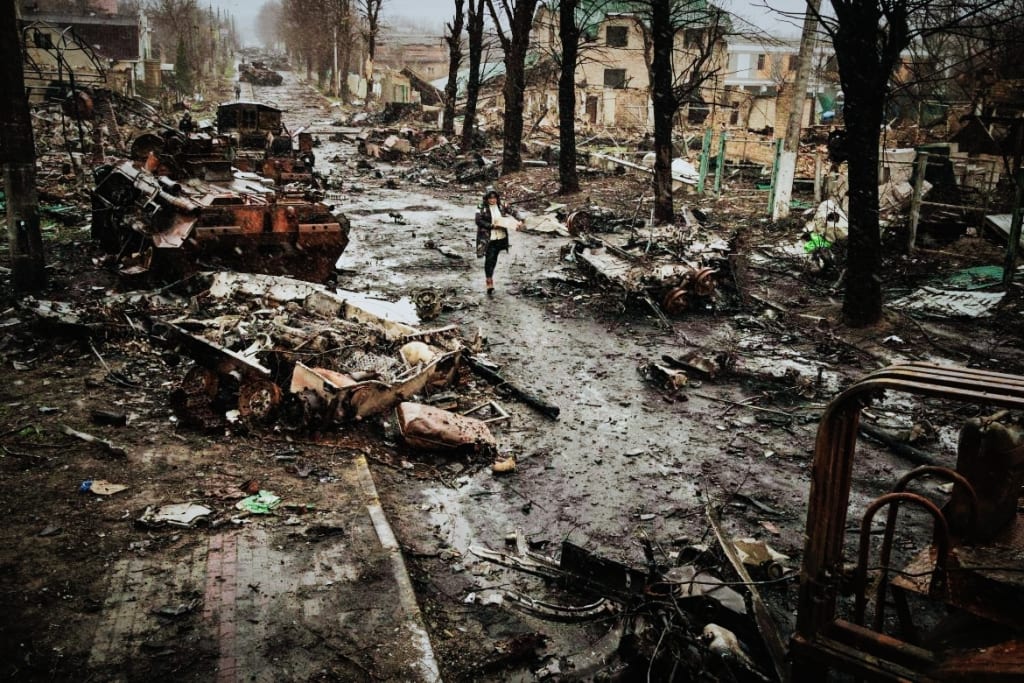"Putin Could Start World War 3," Fears Germany
"World War 3 Fears: Germany's Perspective on Putin's Actions"

Top-secret classified documents obtained from the German Ministry of Defense provide detailed insights into Russia's potential strategy for escalating tensions in Ukraine. The documents underscore the alarming prospect of Russia initiating a broader conflict by first invading Belarus. Retired US Army Brigadier General Kevin Ryan has emphasized the critical importance of NATO's readiness to prevent the escalation of this threat, emphasizing the need for proactive measures. The classified materials also suggest a timeline, indicating that Russia may have initiated hostilities in the Baltic states as early as July. This initiation reportedly involved powerful cyberattacks and exploiting discontent among Russian citizens residing in Estonia, Latvia, and Lithuania.
According to papers obtained from the German Ministry of Defense and published by the German publication BILD, Europe is ready for the prospect that Russian President Vladimir Putin would intensify the crisis in Ukraine and extend hostilities to other NATO members. According to these documents, Germany's armed forces are getting ready in case Russia launches a "hybrid" attack in Eastern Europe.
The frightening scenarios described in the leaked material include "Alliance Defense 2025," which might start as early as February and involve Russia deploying an extra 200,000 troops. According to a New York Post article, this mobilization may come after the West stops providing financial support to Ukraine, which would result in a major Russian offensive in the spring.
The former commander of the United States Army in Europe says Germany has good reason to be concerned about Russia starting a world war. He underlined that if Russian President Vladimir Putin believes NATO is unprepared, he may take drastic action. "World War Three could develop in just 18 months if nations do not take the threat of Russia'seriously' and act in 'alliance,'" stated retired Lieutenant General Ben Hodges.
According to the documents, Russia may have started the war in the Baltic states in July by using strong cyberattacks and taking advantage of the unhappiness of Russian citizens living in Estonia, Latvia, and Lithuania. Russia may hold "Zapad 2024," a massive military drill with some 50,000 soldiers, in western Russia and Belarus by September.
Russia may decide to send soldiers and mid-range missiles to Kaliningrad, a small area of Russian territory sandwiched between NATO allies Poland and Lithuania. A propaganda operation to fabricate the appearance of an impending NATO attack with the goal of capturing the Suwalki Gap—a vital route connecting Belarus and Kaliningrad—might be part of the strategy.
By year's end, Russia might take advantage of the US presidential transition period to create instability in the Suwalki Gap region by fabricating border conflicts or riots through media. The scenario predicts that 30,000 German troops would be sent to Belarus to defend against an estimated 70,000 Russian forces in response to these developments. NATO may respond by May 2025 to thwart additional Russian advances, which would result in direct fighting between Russian and Western forces.
Putin and other Russian leaders have continuously denied any desire to take the crisis in Ukraine outside of their borders, notwithstanding these possibilities. Nonetheless, European allies are bracing for a range of scenarios and are treating the danger seriously.
An estimated half a million Ukrainian and Russian soldiers have died or been injured in the ongoing conflict between Russia and Ukraine, which broke out in February 2022. The necessity for thorough preparation has been highlighted by recent comments made by Micael Bydén, the country's military commander-in-chief, and Carl-Oskar Bohlin, Sweden's minister of civil defense, regarding the likelihood of war in their homeland.
The German Defense Ministry told BILD that taking into account a range of possible scenarios—even improbable ones—is a standard component of military operations and training, even though it would not comment on any particular ones.





Comments
There are no comments for this story
Be the first to respond and start the conversation.